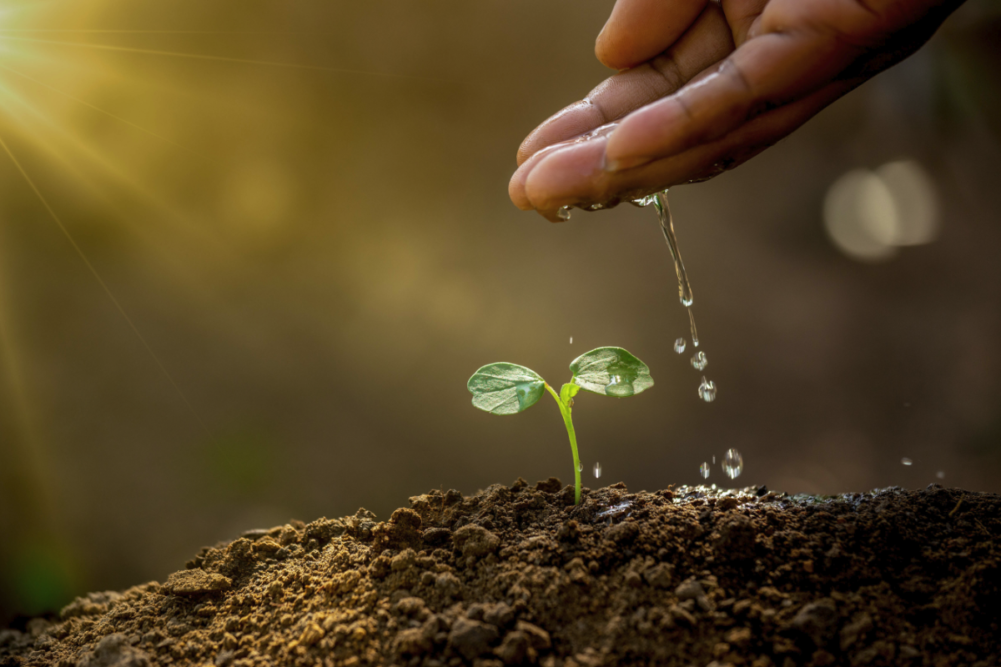BOSTON, MASSACHUSETTS, US — Danone North America and Ingredion have committed to improve water stewardship and sustainable agriculture practices on more than one million total acres of agricultural land.
The Ceres and World Wildlife Fund (WWF) AgWater Challenge is working with companies to improve soil health and nutrient management practice for commodities produced in high-risk watersheds.
“We welcome these bold commitments to reduce water impacts by deploying strong soil health practices,” said Beth Hooker, senior manager of water and agriculture resilience at Ceres. “Having commitments from companies that range across multiple crops — rice, corn, dairy feed, almonds, cassava, potatoes — provides many opportunities to promote positive water outcomes through the implementation of practices that improve soil health. We hope these commitments encourage more companies to take action to preserve and protect watersheds where they have a footprint for generations to come.”
Launched in 2016 by Ceres and WWF, the AgWater Challenge encourages better water stewardship among food and beverage companies. These two new commitments set a high-water mark for businesses to protect freshwater resources in their agricultural supply chains and includes the addition of 1.1 million acres over the next 10 years of farmland to be prioritized with water stewardship and sustainable agriculture practices.
Each company made individual commitments and goals.
Danone North America:
- Will expand efforts to promote soil health and water outcomes on 82,000 acres in existing programs and in high water risk regions across the United States by 2025. Will focus on dairy feed and almonds.
- Creating incentive programs that will cover 100% of acres and farmers associated with this commitment by 2025, including technical assistance through EcoPractices Assessments and support for farmers to identify and secure financial assistance to foster practice adoption.
- Participate in collective watershed action in high water risk watersheds via collaboration with appropriate NGOs.
“Water is fundamental and smart management of this finite resource is critical,” said Deanna Bratter, head of sustainable development at Danone North America. “Our participation in the AgWater Challenge connects us with like-minded partners and enables both collaboration and transparency on our journey of continuous improvement as we work to protect and restore the water cycle and use our business as a force for good.”
Ingredion
- Committing to adoption of regenerative agricultural practices on 500,000 acres of corn, tapioca, potato, pulses, and stevia grown in high-risk watersheds by 2027, and across 1 million acres by 2030.
- Provide technical assistance to farmers through Ingredion agronomists, training programs designed to share efficient farming practices and their potential economic benefits, and implementation support for technological improvements.
- Collaborate with the Sustainable Agriculture Initiative Platform
and its member organizations on the development of a food and beverage industry regenerative agriculture standard, planned to be completed by 2022.
“As a company guided, united, and inspired by our purpose of bringing the potential of people, nature, and technology together, Ingredion relies on the good work of growers to provide the agricultural inputs that are critical to our business,” said Brian Nash, vice president of global sustainability at Ingredion. “We are committed to supporting the efficient use of water in agriculture and we look forward to collaborating with Ceres and WWF to leverage the expertise and leadership that they help bring to this program to further advance our sustainability efforts.”
The new commitments from Danone, and Ingredion build on previously made commitments from other AgWater Challenge participants, including Target, Driscoll’s, Diageo, General Mills, Hormel Foods, Kellogg Co., and PepsiCo.
“As human demand for water grows, particularly for agriculture, the pressures on critical freshwater ecosystems also grow,” said Nicole Tanner, manager of Corporate Water Stewardship at WWF. “When companies incorporate soil health into their water stewardship practices across their agricultural supply chains, they not only improve water quality and quantity, but protect the livelihoods of the farmers who need those resources.”






